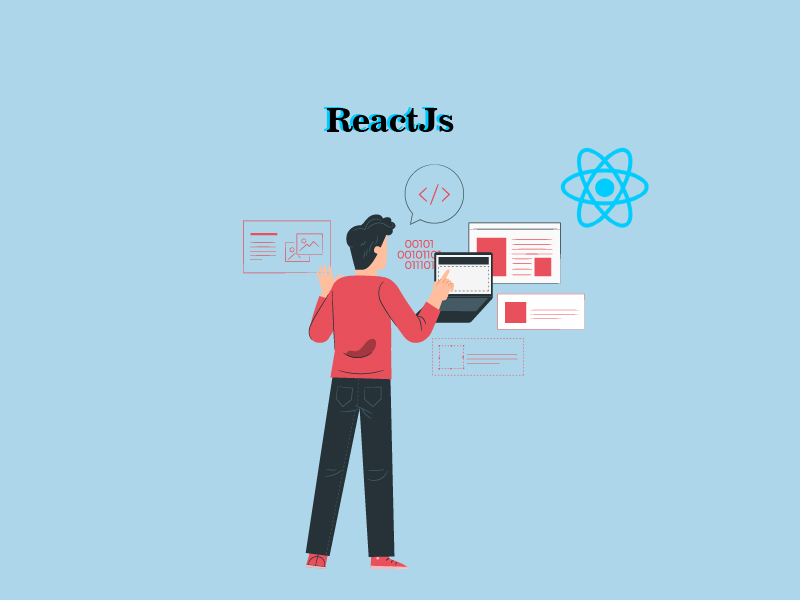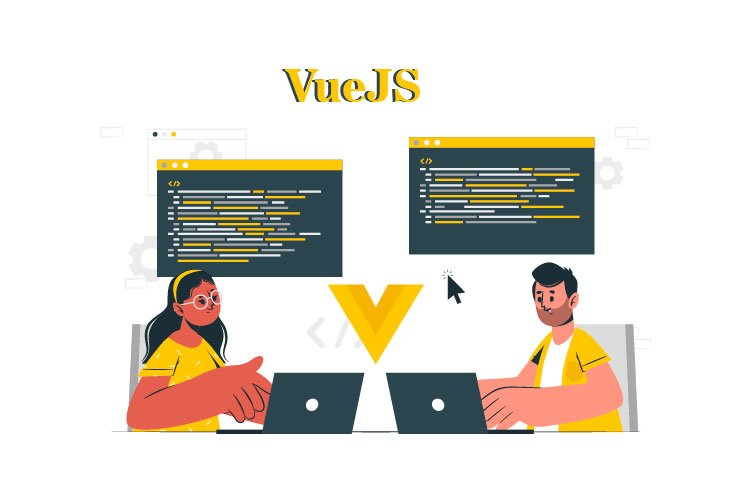In this article
- A Brief Introduction of Angular vs Vue vs React
- Angular Vs Vue Vs React in 2022
- Let’s Understand Angular, Vue, and React On Different Parameters
- Why & When should you choose Angular.js
- Why & When should you choose Vue.js
- Why & When should you choose React.js
- Easiest learning Curve: VueJS
- Steepest learning curve: AngularJS
- Medium learning curve: ReactJS
- Angular vs Vue vs React: Who wins?
- To conclude…
Only a few years ago, developers were primarily debating whether to use Angular or React for their applications. However, recently, interest in a third player known as Vue.js has grown. In this blog post, we are going to dig deeper and explain to you the Angular vs Vue vs React with basic differences and which one you should choose for web development.
So, sit tight, this post will help you decide which JavaScript framework to use if you are a developer just starting out on a project or a startup looking to outsource your project.
Let’s take a look inside each of the three major front-end development frameworks to understand what makes them unique and where they excel. We want to shed some light on the topic of choosing the best framework and provide a solution to the primary question: “Which framework should I choose – Angular, React, or Vue.js, and why?”
A Brief Introduction of Angular vs Vue vs React
Before we get into the technical details, let’s first know about the frameworks to appreciate their philosophy and evolution over time.
AngularJS
AngularJS is a Google-developed open-source web framework that was first released in 2009. Furthermore, the framework functions as a JavaScript library that developers can use to create dynamic website features and components. Importantly, AngularJS was built to assist developers in the creation of Single Page Applications (SPA).
To clarify, SPAs are web applications that do not require page reloading. Google Maps, Facebook, and Gmail are examples of such apps. SPAs also have an excellent user experience due to the browser’s simulation of a “natural” environment. In other words, as the name implies, it is a single web page that uses JavaScript to load all of the application’s content.

ReactJS
Another famous open-source JavaScript library is ReactJS. Furthermore, some developers regard ReactJS as more of a library than a web framework. ReactJS is another one of those libraries that are created and supported by large tech businesses. Facebook is the entity behind the library in this situation.
The JavaScript library was launched by the social media giant in 2011 with the goal of assisting developers in solving difficulties linked to the efficient providing of massive data volumes.
 VueJS
VueJS
VueJS is another prominent JavaScript-based web framework. Evan You, a former Google employee, designed it in 2014. After working with AngularJS, Evan wanted to create a JavaScript library that incorporated the advantages of AngularJS while being lightweight. Because of this, the two frameworks have a lot in common; nevertheless, VueJS has a less steep learning curve than AngularJS.

Angular Vs Vue Vs React in 2022

Image: source
Some resources compile statistical data, such as which development environments are the most popular, which programming languages are the most popular right now, and so on. Stack Overflow, for example, published these numbers.

Image: Source
Vue.js is only in 7th place among the frameworks, although it is actively developing. Angular.js 2022 is more popular and is just one position behind React.js.
Let’s Understand Angular, Vue, and React On Different Parameters

Why and when should you choose Angular.js, Vue.js, and React.js?
Angular.js:
- No one can deny the fact, AngularJS opinionated structure and a built-in set of functions are perfect for large-scale, real-time, and dynamic application development like chat apps, and instant messaging.
- A well-formed structure along a broad set of enclosed features makes Angular highly appropriate for cross-platform mobile development and Enterprise applications
Vue.js:
- Developing a light-weight and single-page web application is now the best bet for Vue.
- If speed and performance are your priority, Vue would be your best choice.
React.js:
- You should choose React if you’re working on a frontend UI that requires a lot of user interaction.
- If your existing code base is getting out of hand, you should switch to React.
- When used effectively, React may save a lot of time, effort, and money in frontend development.
Learning Curve
As per their background, developers will have varied points of view on which framework of the three is the easiest to learn.
Easiest learning Curve: VueJS
As per our opinion, VueJS is the most straightforward framework for most web developers to learn. As it is closest to HTML and JavaScript basics, it will feel familiar. Getting started with VueJS is as easy as adding one import to an HTML document. As you create more complex apps, VueJS does get more complicated. This needs working with .vue files, which needs a more complex project setup (although the Vue CLI can make this much simpler) and you will have to immerse into more complex patterns.
Steepest learning curve: AngularJS
As Angular uses TypeScript, which is a subset of JavaScript, its learning curve happens to be steep. The components, syntax, and modules that you use can appear quite different from the JavaScrip syntax that you are used to. Though angular has a lot of robust, built-in features which lead developers into certain coding patterns that can prove to be quite helpful in creating applications.
Medium learning curve: ReactJS
ReactJS has, what we say, a medium-to-steep learning curve. Though it uses an ‘everything is JavaScript’ approach, there are two conditions to ReactJS. First is that it works best with ES6 syntax, which can prove to be challenging for a beginner developer. The second is the use of JSX, which is a syntax hybrid of HTML and JavaScript and is not used for typical JavaScript projects. Because JSX looks like HTML, it can be difficult at first, but is still JavaScript, leading to some confusion in understanding the code.
So, the learning curve winner happens to be VueJS.
Angular vs Vue vs React: Who wins?
Let us review the characteristics of each framework at the end of this post to try to answer the question: Angular vs Vue vs React: which one should you choose?
Angular is the most mature framework, with a large community of contributors and a comprehensive set of features.
However, the learning curve is steep, and novice developers may be scared off by Angular notions.
Companies with large teams and developers that already use TypeScript should consider Angular.
React is just old enough to be mature, with a large number of community contributions. It has earned a lot of popularity. The job market for React is booming, and the framework’s future seems promising.
React appears to be a decent alternative for newcomers to front-end JavaScript frameworks, startups, and developers who value flexibility. Its ability to smoothly interact with different frameworks is a huge plus for individuals who want more freedom in their coding.
Vue is a newcomer to the market, with no substantial corporate support.
However, it has done exceptionally well in recent years to establish itself as a serious contender to Angular and React, particularly since the introduction of Vue 3.0. This could explain why Chinese behemoths like Alibaba and Baidu have chosen Vue as their preferred front-end JavaScript framework. If you want simplicity but yet want flexibility, Vue is the way to go.
To conclude…
The conclusion to the Angular vs. Vue vs. React discussion is that there is no absolute best choice, which you probably expected.
Each of these libraries has its own set of advantages and disadvantages. One of them will be more suitable than the others depending on the project you’re working on and your specific requirements. It’s crucial to conduct your own research before making a decision, especially if you’re working on a company initiative rather than a personal effort.
Which framework, Angular, Vue or React, do you believe is the winner here? Please let us know in the comments section below.
About the Author
Let’s Create Something Great Together!
Latest Blog















